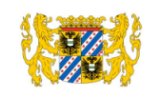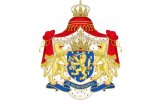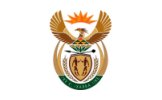Explanations
DISTRIBUTION-OFFICE.
From the beginning of the second world war there were large deficits to the first necessities such as milk, bread, clothes, etc, and all those goods were divided by means of a voucher system to the population. Any adult person got basically the same amount of coupons per period (for clothing and shoes also called "points"), but someone who did heavy work got some more coupons (for example, bread and potatoes) and babies and young children received some more milk, etc. This system was called "distribution" and this distribution was per district or larger towns governed by a specially Office, hence "distribution office". The distribution was in use till around 1950 when the supply of all kinds of goods was more or less normalised.
DTBL
If on the privat-page's not otherwise is mentioned it concerns the registers of the Reformed Church in Dokkum - Friesland. Moreover the type of register and invetory-number are mentiond. In short on the private-pages is stated: Coll. DTBL, the register (with dates) and the inventory-number of the Baptizing-, Wedding- and Burialregister, DTB + number.
As a fictive example: Coll. DTBL, Banns-register 1760-1811, DTB 178. A part of the data from the Mormonchurch are confirmed or completed by the Collection DTBL.
MAVO - Middelbaar Algemeen Vormend Onderwijs.
It is the equivalent of General Secundary Education
HAVO - Hoger Algemeen Vormend Onderwijs.
It is the type of education that is equivalent to Senior General Secundary Education
HBS - Hogere Burger School.
The education was equivalent to Senior General Secundary Education.
This type of school doesn't exist anymore. By the Dutch education-law of August 1968 the HBS was replaced by the HAVO. (see above)
The education was more or less similar to Senior General Secundary Education, but the level of the education was definitely higher then that of the HAVO.
The education was either 3-years or 5-years. With the 5-years education you were allowed to study at a university.
The HBS was considered to be elitist because generally speaking the "common" Duth children had there education at the MULO (se below) whereas the children of the "upper-class" were following there education at the HBS, Atheneum, or Grammarschool.
MORMONCHURCH.
The Mormon-church, also known as "The Church of Jesus Christ of Latter-days Saints" was founded on 6 april 1830 by Joseph Smith Jr. One of the most distinctive aspects of this religious doctrine is that the Mormon-church wants to (re)baptize people who already past away, also if they died long ago. For that purpose members of this church place (put?) themselfs disposable to be baptized on behalf of (for?) a died person. For that purpose the Mormon-church carries out comprehensive genealogical investigations, and that is why all kind of data about our family, going back to about 1630, also are available.
If you want more information about the Mormon-church then click on the adress below. You will get the Dutch version. You can find the English version if you click in the menu on the leftside on "English"
http://nl.wikipedia.org/wiki/Kerk_van_Jezus_Christus_van_de_Heiligen_der_Laatste_Dagen
MULO - Meer Uitgebreid Lager Onderwijs.
This type of education, following the "lower school" (now primary school) was established by the Education Act of 1857. You had to study about fourteen subjects such as the languages Dutch, French, German, English; furthermore algebra, geometry, commerce practice, physics, biology, etc. For the diploma B they paid much more attention to the subjects algebra, geometry and physics
By the Dutch educationlaw of 1968 the MULO was replaced by the MAVO. (MAVO: see elsewhere on this page).
If you want to know more about the MULO then klick on the adress beneath.
http://nl.wikipedia.org/wiki/Mulo.
NSB - Nationaal Socialistische Beweging.
NSB stands for National Socialist Movement. The NSB was a politic party with totalitarian national-socialistic principles. The party was founded on the 4th of November 1932 by ir. A. Mussert. The first years after the foundation the party had more or less her own interpretation of the national-socialism, they still honoured the Royal House and left the Jews allone, but from about 1934 on the party drifted, under the influence of radical members of the leadership, more and more to the German nazism. During the second Worldwar the NSB carried out statu labour for the German occupiers. In 1945 the party was banned.
If you want to know more about the NSB then klick on the adress beneath.
http://nl.wikipedia.org/wiki/Nationaal-Socialistische_Beweging
TJALK.
The "Tjalk" is a historical sailing cargo ship of about 80 to 140 tons cargo capacity mainly ment for the inland waterways such as canals and rivers, however the bigger Tjalk's also were used in the Baltic. This type of vessel sure exsist form the 17th century onward; original build of wood but later on also build from iron and after that period of steel. The Tjalk was everywhere known and was used in the area between the Baltic till in England and the northern France.
exsist form the 17th century onward; original build of wood but later on also build from iron and after that period of steel. The Tjalk was everywhere known and was used in the area between the Baltic till in England and the northern France.
The Tjalk is a rather long vessel, is narrow, has a shallow draught and a flat bottom. It has a round bow and has rounded bilges. For the stablisation of the ship when sailing she has on both sides a lee-board. Usually the Tjalks have one mast with a boom sail and a foresail. For housing the ship has nearly always a deck-house.
Because on the inland waterways mostly there was not enough wind and the canals were too narrow, these Tjalks could not sail on these waterways. If the ship had no enigine then up to about 1950-1955 the ships were towed on a long towing-line by a horse, or even by the family of the shipper harnessed to the towing-line. Therefore everywhere on both sides of the canals were the socalled towing-paths.
At present goods are mostly transported by ax or by much bigger ships and that is the reason why the Tjalk is not used anymore to transport goods. But; every now and then these Tjalks are used, after extensive restoration, as pleasure-craft or as living-boat.
VWO. - literally: Voorbereidend Wetenschappelijk Onderwijs - which means: Pre-academical or pre-universiy education.
At the VWO you can study at three levels;
1. HAVO - See above,
2. Atheneum.
3. Grammarschool.
WA. - litterally: WeerbaarheidsAfdeling - which means Defence Department.
The WA was an unarmed uniformed Department of the National Socialist Movement (NSB). The WA was founded at the end of 1932 and got the task the NSB in general and the leader Ir. A Mussert to protect against attacks from political opponents.
In theory the WA was in military way strong disciplined and only defensively but in practice it was a receptacle of uniform lovers with low violence threshold. By the violent action of the WA against opponents on both sides there were many people injured and more than once severe.
If you want to know more about this topic, click on the address below.
http://nl.wikipedia.org/wiki/Weerbaarheidsafdeling.
 Wapen van Groningen
Wapen van Groningen Canadian coat of arms
Canadian coat of arms Wapen van Nederland
Wapen van Nederland South-African coat of arms
South-African coat of arms